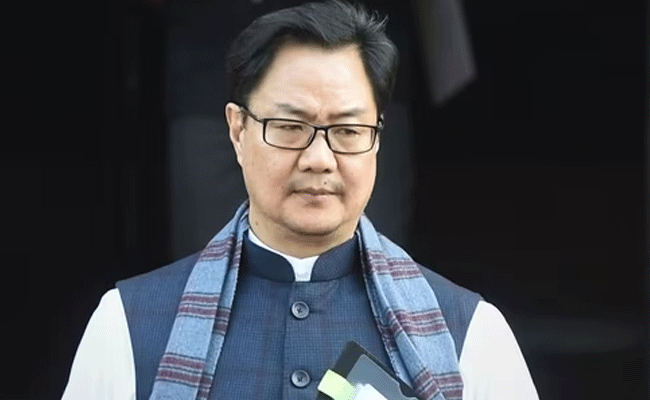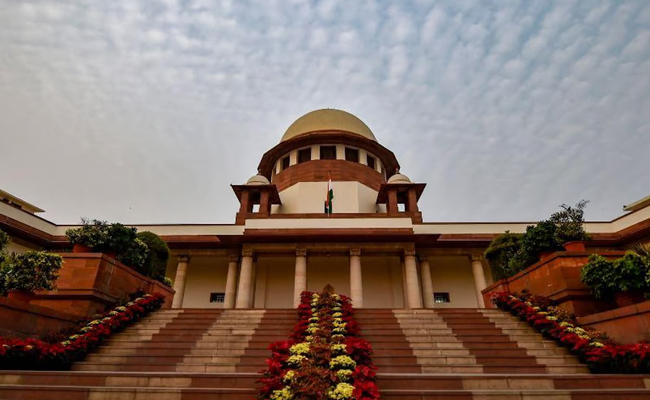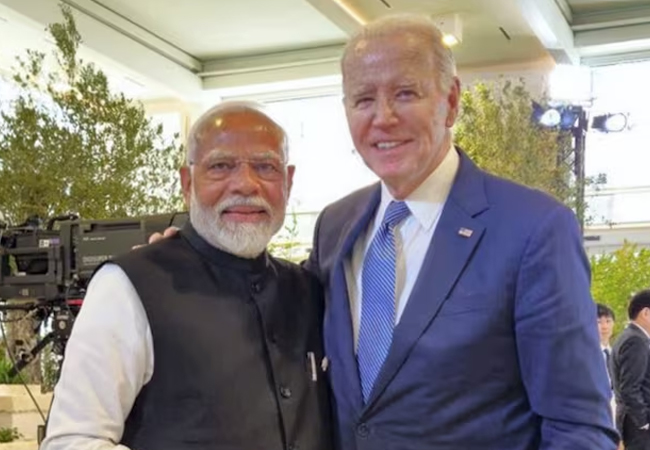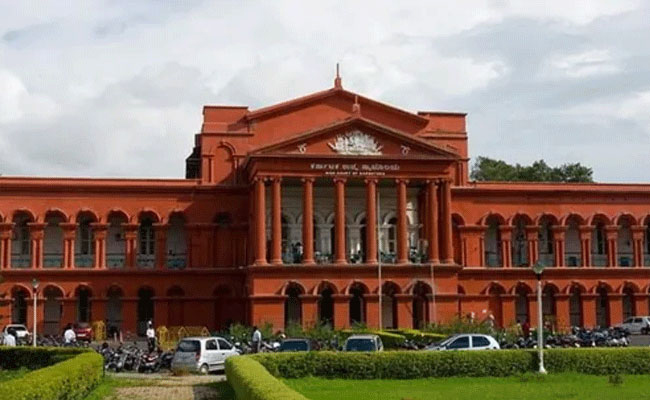New Delhi (PTI): There is no proposal to use the remote electronic voting machine (RVM) in the "upcoming election" in the country and it is also not proposed for the use of Non-Resident Indian (NRI) voters, Lok Sabha was informed on Friday.
Responding to a question in the Lower House of Parliament, Law Minister Kiren Rijiju said in a written reply that according to the Election Commission (EC), it has "not proposed to introduce the RVM for the upcoming election in the country".
Several assembly polls are due this year, while the Lok Sabha elections will be held in 2024.
The minister said the EC has also informed that the RVM is not proposed for the use of NRI voters.
Rijiju noted that public sector unit Electronic Corporation of India Limited (ECIL), under the guidance of the EC and the Technical Expert Committee of the poll panel, has developed a prototype of the Multi Constituency Remote Electronic Voting Machine.
The EC, he said, had circulated a concept note to all national and state political parties on improving voter participation of domestic migrants using remote voting .
The note included matters such as defining a 'migrant voter', addressing the territorial concept, the method of remote voting and counting of votes, enforcement of the Model Code of Conduct, and setting up of controlled environment to ensure free and fair voting.
Citing details shared by the EC, he said the introduction of RVM would not increase fake votes.
"The prototype RVM developed by ECIL is a robust and stand-alone system based on the existing EVMs... Independently, various statutes -- the Representation of People Act, 1950, and the Representation of People Act, 1951, the Conduct of Election Rules and various guidelines and instructions of the EC will ensure that the confirmation/genuineness of voter identity is verified," Rijiju said.
Chief Election Commissioner Rajiv Kumar had last month described the EC's proposal on remote voting as a "work in progress" and said it was not an easy subject and reaching decisions in a democracy takes time.
Responding to questions on the recent all-party consultations on remote voting, he had said it was "successful" with representatives of recognised parties sitting through the entire day. The issue of 30 crore "missing voters" came to limelight.
Kumar had said urban voters, youth and domestic migrants form part of the 30 crore voters who did not participate in the last Lok Sabha elections.
Let the Truth be known. If you read VB and like VB, please be a VB Supporter and Help us deliver the Truth to one and all.
Under the aegis of Alzheimer’s Disease International (ADI), people coming together from all around the world celebrate the month of September as World Alzheimer’s Month and commemorates World Alzheimer's Day every year on September 21st. This campaign advocates for an International awareness-raising effort for Alzheimer’s disease (AD) and other dementias.
The theme for World Alzheimer’s Day 2024 is “Know Dementia, Know Alzheimer’s.” Considering the ‘human longevity revolution’ and the ‘human ageing time bomb’; the dementia crisis has been designated as the “the epidemic of our century”. It is estimated that more than 57 million people have dementia worldwide. More than two-thirds of them were in low-and middle income countries (LMICs). In India, data From the Longitudinal Aging Study in India (LASI) estimated that 8.8 million Indians older than 60 years live with dementia. The two most common causes of dementia are Alzheimer´s disease (AD) and vascular dementia. AD accounts for 50-70% of all cases of dementia, about 20-30% have either vascular dementia (VaD) or a combination of VaD and AD, the other dementia syndromes being Frontotemporal dementia (FTD and Dementia with Lewy Body (DLB).
Although ageing is one of the main risk factor for dementia, Dementia is not inevitable with ageing and is best depicted as a disorder on the “continuum of aging casualty”. We need to re- think dementia to be a "lifestyle disorder." Research has shown that AD develops in the life-course of 20-30 years on the background of ageing intricately and inexorably interacting with lifestyle risk factors (LSRFs), behavioural risk factors (BRFs), and Vascular Risk Factors (VRFs) along with other metabolic risk factors resulting in dementia.
The dementia process and brain pathology associated with dementia inexorably creeps in from early-life (20-40 years age group) to mid-life (40-59 years age group). AD is therefore a slow neurodegenerative neuropathological process resulting from cumulative brain pathology over a decades-long process, and is not an event that occurred de novo as a in late-life disorder. By the time AD manifest as symptomatic dementia, the brain neurodegeneration can no longer be prevented. Current treatment into AD is ‘too late’ and offers symptomatic treatment only.
Being a neurologist trained in Memory/Cognitive Disorders and Dementia, I am not being a therapeutic nihilist when much research is underway for novel anti-dementia, anti-amyloid and other drug targets are in the pipeline. However, I wish to reiterate that until such effective, curative or disease modifying drugs are available, both in the developed and developing countries easily/cheaply, preventive neurology strategies will remain the Holy Grail in addressing the dementia epidemic. I fervently believe that Epidemics can only be eradicated by prevention, not by therapy!
Optimism for a life-course perspective to dementia prevention stems from evidence in a recent study published in 2020 as the Lancet Commission Report on dementia prevention. Similar to the much practiced Preventive cardiology and the evidence from the Framingham Risk Score (FRS) that estimates a patient's 10-year risk of cardiovascular disease (CVD); there is now research evidence to similar riskometer tools in dementia. This includes Mid-Life Dementia Risk Score and Late-Life Dementia Risk Index, which can accurately predict the likelihood of older adults developing dementia in the future life-course. This novel approach for the prediction of dementia risk could help to identify individuals who might benefit from intensive brain healthy lifestyle interventions that could stave off dementia in the future.
The evidence from the 2020 Lancet Commission report lends credence that about 40% of dementia cases worldwide could theoretically be prevented or delayed by eliminating 14 modifiable risk factors during an individual's life course. Hence, it’s never too early or too late to act, to make such risk factor strategies at any stage during early or mid-life course. The 14 risk factors cited in the 2020 Lancet Commission report are low education, hearing loss, hypertension, smoking, obesity, depression, physical inactivity, diabetes, excessive alcohol consumption, traumatic brain injury (TBI), air pollution, social isolation, vision impairment, and high LDL cholesterol.
A life-span approach with a life-course approach focussing on Brain healthy Lifestyles, the promotion of Brain health and well-being, and healthy brain ageing (HBA) strategies would exert brain protection by preserving the brain’s cognitive reserve, brain neuroplasticity, brain resilience, and pave the route to a Dementia free life expectancy (DemFLE) operant on ‘The Scaffolding Theory of Aging and Cognition’ (STAC) conceptual model. The brain healthy lifestyles would mandate staying physically fit, adopting an active socially integrated lifestyle, (leisure activities, walking, bicycling, gardening ,playing musical instruments, social networking, visiting friends and relatives, going to movies, Hobbies) staying mentally and cognitively active( brain gym activities such as learning, reading, playing games, sudokos, puzzle games, meditation, yoga), being spiritually active, finding a ‘purpose in life’ (PIL or ‘Ikigai’) ensuring eudaimonic well-being (EWB), eating smart adhering to brain healthy diet (the Asian-Mediterranean diet, diets high in fish, fruit, and vegetables fruits), sleeping well, quitting tobacco and alcohol, and coping stress, depression and anxiety, and by promoting mental resilience for subjective psychological well-being.
In fact, the World Brain Day on July 22nd this year the German Society of Neurology and the German Brain Foundation lend some evidence that too much sugar can harm the brain and impact AD. We should also be ‘Heart Smart’ to be ‘Brain Smart’ by controlling high blood pressure, treating diabetes mellitus, and preventing obesity to maintain a healthy BMI. My advocacy underscores that by improving lifestyle choices apart from controlling the modifiable risk factors would indeed be a public health roadmap for preventing and staving off the risk for future dementia in the next generation, a promise for tomorrow’s generation for DemFLE
This article would not have a 360° perspective by not addressing a sustainable dementia education for our children, grandchildren and for the next generation. Dementia education in children, school professionals, teenagers, adults, and the elderly in our society is quintessential to ‘know dementia, know Alzheimer’s’ as a lifestyle disorder. Our communities and society should be made aware of the “cradle-to- grave’ life-course perspective in preserving brain health, and adopting proactive brain healthy lifestyles as a public health initiative to dementia prevention in India.
“When meditating over a disease, I never think of finding a remedy for it, but instead a means of preventing it”- Louis Pasteur; 1884
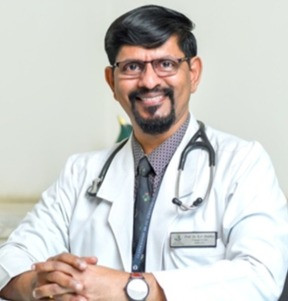
Prof Dr.B.P.Shelley, MBBS, MD, DM, FRCP
Fellowship in Behavioural Neurology, Institute of Neurology, London, UK
Fellowship in Cognitive Neurology, Addenbrooke’s Cambridge University Hospitals, UK
Professor and Head - Department of Neurology
Yenepoya Medical College
Yenepoya (Deemed to be University), Mangaluru, Karnataka

